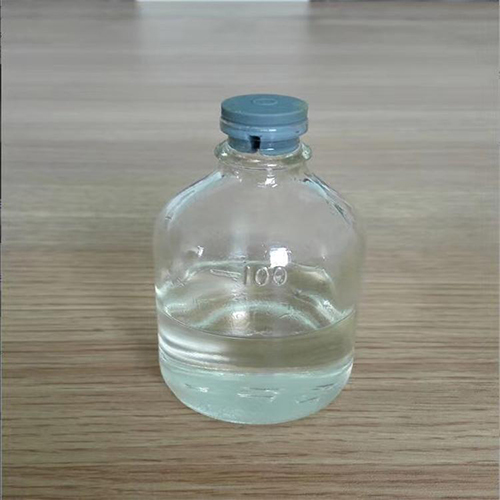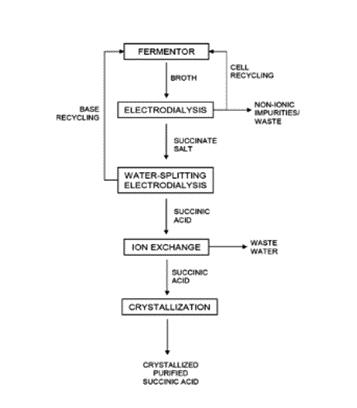The production method of dimethyl malonate
Introduction
Dimethyl malonate is a general organic reagent, and dimethyl malonate is an important raw material for the production of pharmaceutical pipemidic acid[1]. Dimethyl malonate abroad is mainly used as a raw material for the production of pipemidic acid by non-ethoxymethylidene process, and reacts with orthoformate and urea to produce pipemidic acid.
Dimethyl malonate, also known as dimethyl carotenate, is a colorless and transparent liquid with aromatic smell, slightly soluble in water, soluble in various organic solvents such as alcohol, benzene and chloroform. Dimethyl malonate is an important malonic ester compound. Its molecular structure contains active methylene, which is easily replaced by other groups. It can participate in hydrolysis, decarboxylation, burning and other reactions, and is an important raw material for the synthesis of drugs, pesticides, spices, dyes, antioxidants and other fine chemicals. Coumarin dimethyl malonate synthesized from dimethyl malonate is a new class of hypoglycemic compounds

Picture 1 Dimethyl malonate liquid
Application
Dimethyl malonate can be used in pharmaceuticals and organic synthesis. Dimethyl malonate is an important raw material for the production of pharmaceutical pipemidic acid. Dimethyl malonate abroad is mainly used as a raw material for the production of pipemidic acid by non-ethoxymethylidene process, and reacts with orthoformate and urea to produce pipemidic acid. At present, most of the dimethyl malonate produced by related enterprises in my country is used to produce pipemidic acid except for export. Dimethyl malonate can be used as a comparative sample in gas chromatography and can also be used in organic synthesis.
Storage method
Dimethyl malonate should be stored in a cool, ventilated warehouse. Keep away from fire and heat sources. The packaging of dimethyl malonate requires sealing, and should be stored separately from oxidants and strong alkalis, and should not be stored together. Use explosion-proof lighting and ventilation facilities. Prohibit the use of mechanical equipment and tools that are prone to sparks. Dimethyl malonate storage areas should be equipped with emergency release equipment and suitable containment materials. Dimethyl malonate is generally packed in iron drums, 200kg per drum. There are no special requirements for the storage of dimethyl malonate. Dimethyl malonate is stored and transported according to general chemical regulations.
Production method
Dimethyl malonate is mostly prepared by cyanide esterification. Chloroacetic acid and sodium carbonate are neutralized to generate sodium chloroacetate, which is then cyanated with sodium cyanide to obtain sodium cyanoacetate. Sodium cyanoacetate is hydrolyzed into sodium malonate, and then esterified with methanol in the presence of sulfuric acid to obtain dimethyl malonate. After washing and distillation, the finished product is obtained. The ester content of industrial products is ≥98%. Raw material consumption quota: chloroacetic acid 1120kg/t, sodium cyanide 551kg/t, methanol 955kg/t. The new process developed abroad is mainly based on the catalytic carbonylation method, that is, using chloroacetate, carbon monoxide and methanol as raw materials, in the presence of a catalyst, one-step reaction to synthesize dimethyl malonate. In contrast, the catalytic carbonylation process has advanced technology, but the process is complex, the reaction conditions are harsh, and there are certain difficulties in industrialization.
Sodium oxide method is a traditional process for the synthesis of dimethyl malonate. It is prepared by neutralization, oxidation, acidification and esterification with chloroacetic acid, sodium oxide and methanol as raw materials. With chloroacetic acid as starting material, by sodium carbonate and sodium chloroacetate, reacts with sodium oxide can get oxygen ethanoic acid sodium, under the condition of acid, sodium acid acidification generated Yin acetic acid, acetic acid and methanol with oxygen in sulfuric acid catalytic esterification under available methyl malonate.
Cheng Yonggao carried out experimental research on improving the yield of dimethyl malonate. After acidification reaction, in the absence of alcohol, oxyacetic acid, sulfuric acid and water were first added to form sulfate, and then hydrolyzed to form malonate and ammonium bisulfate. Dimethyl malonate was formed by esterification of malonic acid and methanol with the participation of quantitative water. The effects of pH, reaction temperature, reaction time, water content, reaction time, mass ratio of methanol to chloroacetic acid on the yield of dimethyl malonate were investigated. The total yield was more than 85% and the purity was 99%. Sodium oxide method is the main production method of dimethyl malonate in domestic industry. The technology is relatively mature, can achieve stable production, but the process process is long, the use of highly toxic substance sodium oxide, easy to cause serious environmental pollution, in addition to the reaction process will produce a large amount of salt, the subsequent treatment is more complex.
Reference
1 Li Gang, Handbook of Common Intermediates in Fine Chemicals [M], Beijing: Chemical Industry Press, 2009
Related articles And Qustion
See also
Lastest Price from Dimethyl malonate manufacturers

US $1.00/KG2025-04-21
- CAS:
- 108-59-8
- Min. Order:
- 1KG
- Purity:
- 99%
- Supply Ability:
- 10 mt

US $0.00-0.00/Kg2025-04-21
- CAS:
- 108-59-8
- Min. Order:
- 1Kg
- Purity:
- 99.99%
- Supply Ability:
- 20 tons



